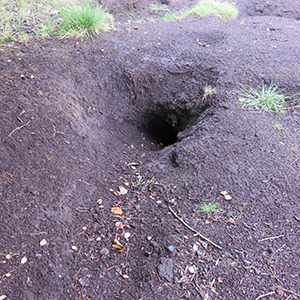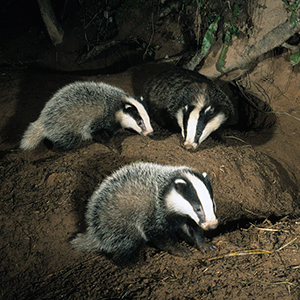Project Description
Badger Survey
Badgers and their active setts are protected by UK law.
Usually as part of the preliminary ecological appraisal a development site is checked for evidence of badger. Where setts are identified or no previous appraisals have been undertaken, clients often commission a badger survey to cover the development site, extending into the wider survey area when required. These are undertaken by an ecologist walking over site during the daytime.
It is not always obvious how a sett is being used or if a badger sett is active, this is when further monitoring of the site will take place. With infra-red video surveillance equipment, we have the ability to observe badgers around their setts at night.
There may be a need for consultation with local records centres and local badger groups. This will ensure that any records of badger in the area will be available which may help with a planning application.

If setts are found during badger surveys, and the sett cannot be retained or avoided, a badger exclusion or disturbance ‘derogation’ licence may be required for development works to proceed.
Derogation licences
A derogation licence is issued by the statutory government bodies; Natural England, Scottish Natural Heritage or Natural Resources Wales. Our expert ecologists can design a mitigation and compensation strategy suitable for submission for a derogation licence, which acts as a legal document. Our highly experienced ecologists are at hand to advise and support Clients through at all stages of this process, this includes preparing licence applications to statutory conservation bodies and overseeing and implementing the exclusion works and all mitigation works.
Licences are usually only granted for the period between the 1st July to 30th November inclusive, so that the badger breeding season is avoided.

Badger surveys are often required to support planning applications, to adhere to legal protection. Where badgers are affected, the Local Planning Authority usually require a method statement which contains details of avoidance impacts or sett closure. As badgers are transient species often applications with no signs of badger have a planning conditions for repeat badger surveys, to ensure that new setts have not been created and therefore affected by development.


